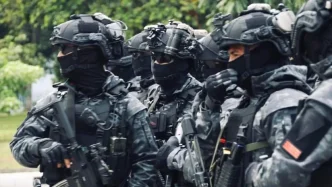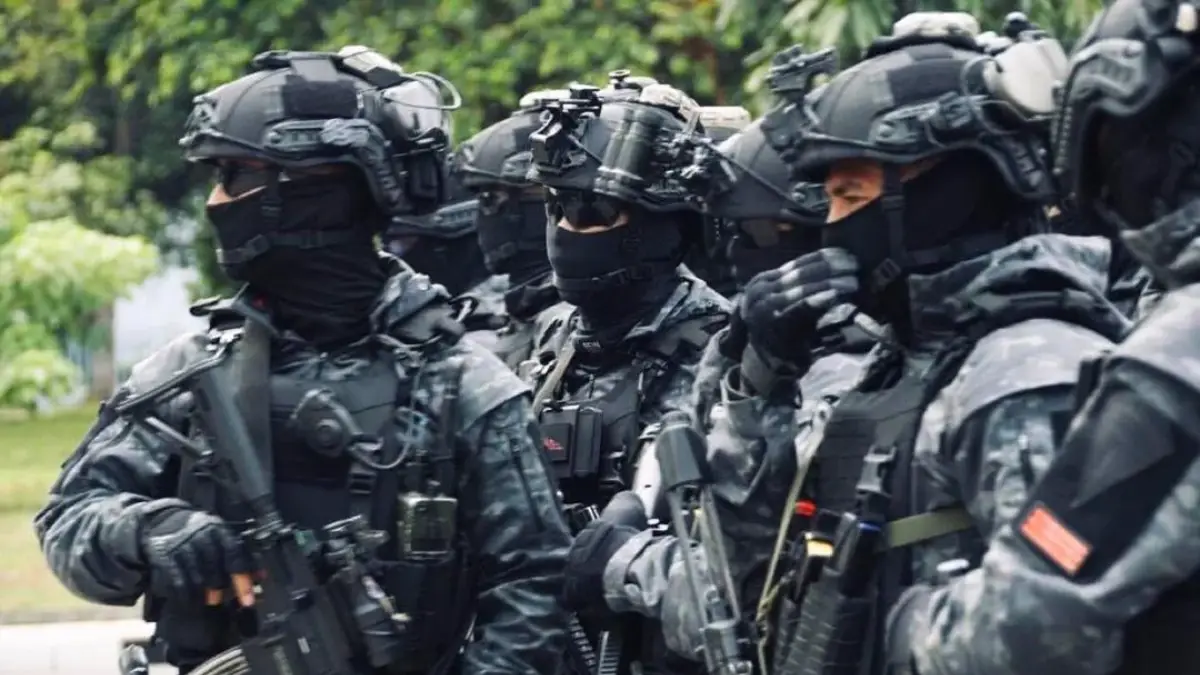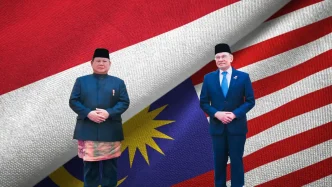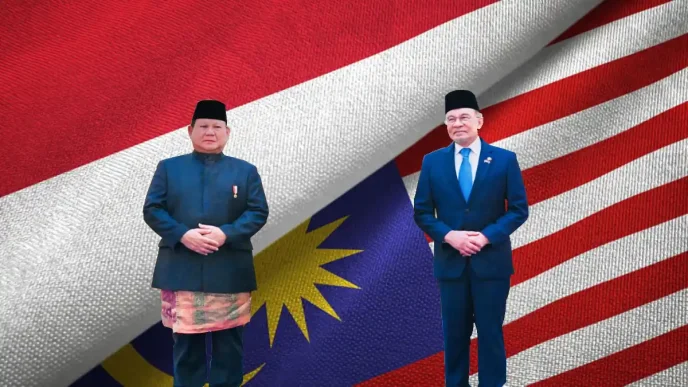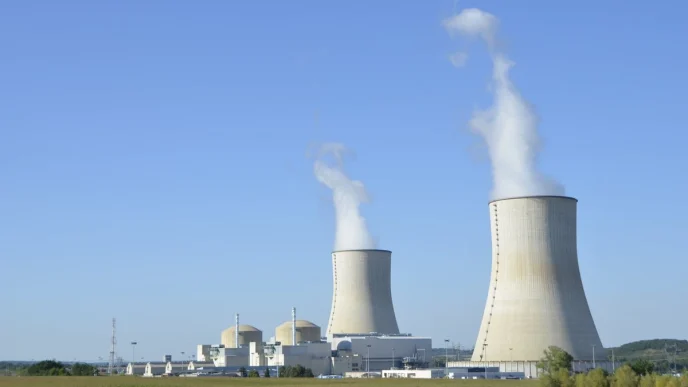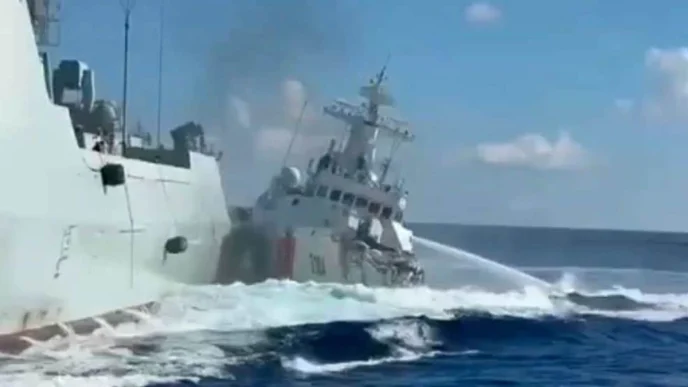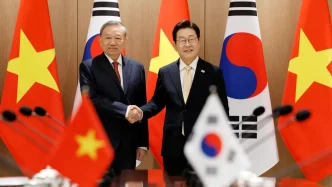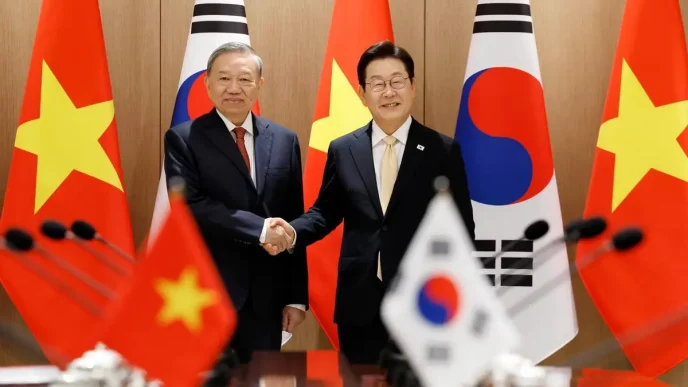A sweeping restructuring of Indonesia’s military (TNI) under President Prabowo Subianto has ignited a fierce debate among analysts and human rights advocates, with concerns centering on the inefficient use of the defense budget and the potential for increased militarization in civilian spheres. The expansion, marked by the creation of numerous new military units and high-level promotions, comes as Prabowo, a former general, seeks to bolster national defense amid global instability.
A Grand Display of Military Might
On August 10, 2025, President Prabowo Subianto presided over a significant ceremony at Suparlan Airfield in Bandung, West Java, where he inaugurated commanders for the elite Special Forces Command (Kopassus), the Marine Corps, and the Air Force Quick Reaction Command (Kopasgat). The event, attended by key figures including Vice President Gibran Rakabuming Raka, House of Representatives Speaker Puan Maharani, and Defense Minister Sjafrie Sjamsoeddin, underscored the administration’s focus on military strength.
The following day, in a separate ceremony in Batujajar, West Java, Prabowo announced a massive expansion of the TNI. This included the establishment of six new regional commands for the Army (Kodam), 14 for the Navy (Kodaeral), and three for the Air Force (Kodau). Additionally, he introduced one air operations command, six new groups within Kopassus, 20 territorial development brigades, 100 territorial development battalions, five infantry battalions for the Marine Corps, and five commando battalions for Kopasgat, among other units.
Coming after Singapore’s National Day, where its military strength was on full display, in a statement of bold and proud nationalism, Prabowo emphasized the necessity of a robust military for a nation of Indonesia’s stature. “A big nation like us needs a strong military. No nation can be independent without having a strong military” he stated on August 10, 2025, highlighting the need to protect Indonesia’s sovereignty and resources in a world marked by conflicts in Europe and the Middle East.
Structural Shifts and Promotions
The restructuring also brought notable organizational changes. Prabowo appointed General Tandyo Budi Revita as TNI deputy commander, reviving a position that had been dormant since 2000 until its reinstatement by former President Joko Widodo in 2019. Additionally, the ranks of commanders for elite units like Kopassus, the Marine Corps, and Kopasgat were upgraded from two-star to three-star general positions, a move seen as enhancing their authority and coordination capabilities across services.
This overhaul follows a wave of promotions within the TNI on August 6, 2025, signaling Prabowo’s reliance on the military to support his administration’s ambitious agenda since taking office in late 2024. Military analyst Khairul Fahmi of the Institute for Security and Strategic Studies (ISESS) welcomed these changes, noting that elevating the ranks of elite force commanders would improve cross-service coordination. “Promoting the commanders of the military’s elite forces to a higher rank will enable them to have more effective cross-service coordination” Khairul remarked on August 10, 2025.
Concerns Over Budget and Efficiency
Despite the optimism from some quarters, the restructuring has drawn sharp criticism for its potential financial burden and questionable effectiveness. Military analyst Rizal Darma Putra of the Indonesia Institute for Defense and Strategic Studies (Lesperssi) argued that the expansion would inflate operational costs without necessarily enhancing military capabilities. “This is not an investment. It is simply an organizational expansion that will cost a lot without necessarily making the military more effective” Rizal stated on August 11, 2025. He suggested that resources would be better allocated to high-tech warfare capabilities and advanced weaponry.
Rizal further criticized the move as a pragmatic rather than strategic decision, aimed at accommodating a surplus of military officers rather than modernizing the TNI. This perspective raises questions about whether the expansion aligns with Prabowo’s broader cost-cutting initiatives, a cornerstone of his administration’s economic policy. The defense budget, already under scrutiny, could face additional strain as the new units demand funding for personnel, infrastructure, and operations.
While TNI spokesperson Major General Kristomei Sianturi has defended the restructuring, asserting that the budget implications were meticulously calculated and not all units would require new recruits, the lack of detailed public disclosure on funding mechanisms continues to fuel skepticism. The debate over financial efficiency is likely to intensify as Indonesia grapples with balancing defense spending against other national priorities such as infrastructure and social welfare.
Fears of Renewed Militarization
Beyond fiscal concerns, human rights activists and analysts have voiced alarm over what they perceive as a return to militarized governance reminiscent of Indonesia’s authoritarian past under President Soeharto. During Soeharto’s New Order regime, the military operated under the “dwifungsi” (dual function) doctrine, which granted it significant influence over civilian affairs and was linked to numerous human rights abuses.
Al Araf of the human rights group Imparsial cautioned that the addition of six new regional military commands signals a shift toward an inward-looking defense posture, prioritizing domestic control over external threats. “Adding six new regional military commands strengthens a structure rooted in the New Order’s dwifungsi doctrine, which reform-era laws sought to reduce, not expand” Al Araf noted on August 11, 2025. This concern is compounded by a controversial amendment to the TNI Law in March 2025, which critics argue has facilitated the military’s growing presence in civilian sectors.
Rizal of Lesperssi echoed these fears, warning that the new regional commands could focus on intelligence functions, subtly overseeing local administrations and eroding democratic oversight. Such a development, if realized, could undermine the reforms implemented after the fall of Soeharto in 1998, which aimed to limit the military’s role in politics and governance.
The expansion of territorial development brigades and battalions, in particular, has raised eyebrows. While ostensibly designed to support national defense, their deployment across civilian areas could blur the lines between military and civic responsibilities, a trend that human rights advocates have long sought to reverse. The lack of clarity on how these units will interact with local governments only deepens apprehensions about their mandate.
Balancing Defense and Democracy
Prabowo’s military background—he served as a general during the Soeharto era and was linked to controversial operations—adds a layer of complexity to the current discourse. While his administration frames the TNI’s expansion as a necessary response to global instability, the historical context of military overreach in Indonesia casts a long shadow. For many Indonesians, particularly those who lived through the New Order, the specter of militarization evokes memories of repression and curtailed freedoms.
The restructuring also comes at a time when Prabowo has tasked the military with supporting key civilian projects, from infrastructure development to public health initiatives. This blurring of roles, while pragmatic in addressing immediate needs, risks normalizing military involvement in non-defense areas, a trend that could have lasting implications for Indonesia’s democratic institutions.
Analysts like Khairul Fahmi argue that a modernized military is essential for Indonesia to assert its sovereignty in a geopolitically volatile region, particularly given tensions in the South China Sea and broader global uncertainties. However, the challenge lies in ensuring that such modernization does not come at the expense of democratic principles or fiscal responsibility.
A Path Forward Under Scrutiny
As Indonesia navigates this ambitious military overhaul, the balance between strengthening national defense and preserving civilian governance remains delicate. The creation of new units and the elevation of military ranks under Prabowo’s leadership may enhance the TNI’s operational capacity, but it also amplifies the risk of overreach into civic spaces—a concern that reformists have fought to mitigate for decades.
Public and international scrutiny will likely intensify as the full scope of the restructuring unfolds. For now, questions linger over whether the financial costs and structural shifts will yield a military that is both effective and accountable, or whether they will pave the way for a return to past practices that prioritized control over democratic ideals. The coming months will be critical in determining how Prabowo’s vision for a strong military aligns with Indonesia’s aspirations for a robust democracy.
As reforms progress, the long-term impact on Indonesia’s defense posture and civilian-military relations remains uncertain, with observers watching closely for signs of either progress or regression.
